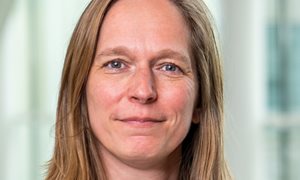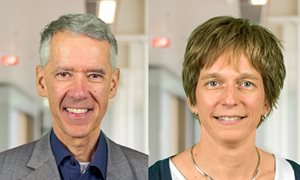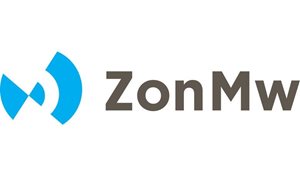
Minimally invasive fetoscopic surgery is a rising medical technology to treat the unborn child, however there is an urgent need to reduce the risks introduced by the surgery. The Plugging the Gap project focusses on a new approach to this problem and the first results were recently published.
For each surgery all benefits and risks have to be considered to make the correct decision. Where this is an easy choice for some surgeries, in other cases there is a stricter balance due to a high risk of potential harms. Unfortunately, fetoscopic surgeries belong to the last category.
Fetoscopic surgeries make it possible to treat unborn children with severe conditions, such as twin to twin transfusion syndrome (TTTS), twin reversed arterial perfusion (TRAP) and congenital diaphragmatic hernia (CDH). To perform the surgery, a small defect (Ø 3 mm) is made with a fetoscope in the maternal abdominal wall, uterus and membranes surrounding the fetus. Although fetoscopy has many advantages, the fetoscopic defect in the fetal membranes does not spontaneously heal, cannot be sutured and introduces a high risk of about 30% for early rupture of the membranes. This is also known as iatrogenic preterm prelabor rupture of the membranes (iPPROM), which is a strong trigger for preterm birth and is considered the achilles heel of fetal endoscopic surgery.
For this reason, Rob Meuwese, Toin van Kuppevelt, Willeke Daamen and colleagues, theme Reconstructive & Regenerative Medicine, worked on a new technique to seal the fetal membranes, which is now published in Bioactive Materials (IF2021 16.8). In this study, they present a collagen plug with shape memory designed to fit through fetoscopic instruments that will directly expand upon placement to seal the membranes.
In the 6-year ZonMw and Health~Holland project, this technique will be studied more in-depth, also including a clinical trial in cooperation with the Dept. of Obstetrics & Gynecology and Dept. for Health Evidence of the Radboudumc, the ErasmusMC, University Hospital Leuven, HCM Medical and several patient organizations.
Meuwese, R. T. C., E. M. M. Versteeg, J. van Drongelen, D. de Hoog, D. Bouwhuis, F. P. H. A. Vandenbussche, T. H. van Kuppevelt and W. F. Daamen (2023).
Related news items

Willeke Daamen ratified as ETRS board member
3 November 2021 Willeke Daamen, theme Reconstructive and regenerative medicine appointed as board member of The European Tissue Repair Society (ETRS). go to page
Grant for early detection of ovarian cancer
5 June 2020 The Department of Biochemistry (Toin van Kuppevelt/Willeke Daamen), together with the Department of Gynecology, has been awarded a grant of 144 kEuro for the development of an assay for the early detection of ovarian cancer. go to page
3 million euro for Marie Curie ITN SkinTERM
5 June 2020 The European Union has provisionally awarded a grant of more than 3 million euro to the SkinTERM project “Skin Tissue Engineering and Regenerative Medicine: From skin repair to regeneration”. SkinTERM is coordinated with Willeke Daamen as coordinator and Toin van Kuppevelt as vice coordinator. go to page
FET-OPEN grant for Toin van Kuppevelt and Willeke Daamen
6 March 2020 A grant of 592 kEuro has been awarded to Toin van Kuppevelt and Willeke Daamen, theme Reconstructive and regenerative medicine, for a Horizon 2020 FET-OPEN project entitled “Heparin and heparan sulphate: from sequence determination to therapeutic strategies for Parkinson’s disease”. go to page
Plugging the gap ZonMw/Health Holland grant
3 March 2020 RIMLS en RIHS researchers Willeke Daamen, Frank Vandenbussche, Joris van Drongelen, Toin van Kuppevelt and Janneke Grutters have been granted 1.3 million euro for the development and evaluation of a new technology to prevent premature rupture of fetal membranes (iPPROM). go to page
Charity event for children with a diaphragmatic defect
26 September 2019For the third year in a row, Rotary Ridderkerk - de Waal organised a golf tournament, dinner and auction to raise research funds for children with congenital diaphragmatic hernia. At the end of the day, a cheque worth € 51,000 was handed over to Sanne Botden and Willeke Daamen.
go to page